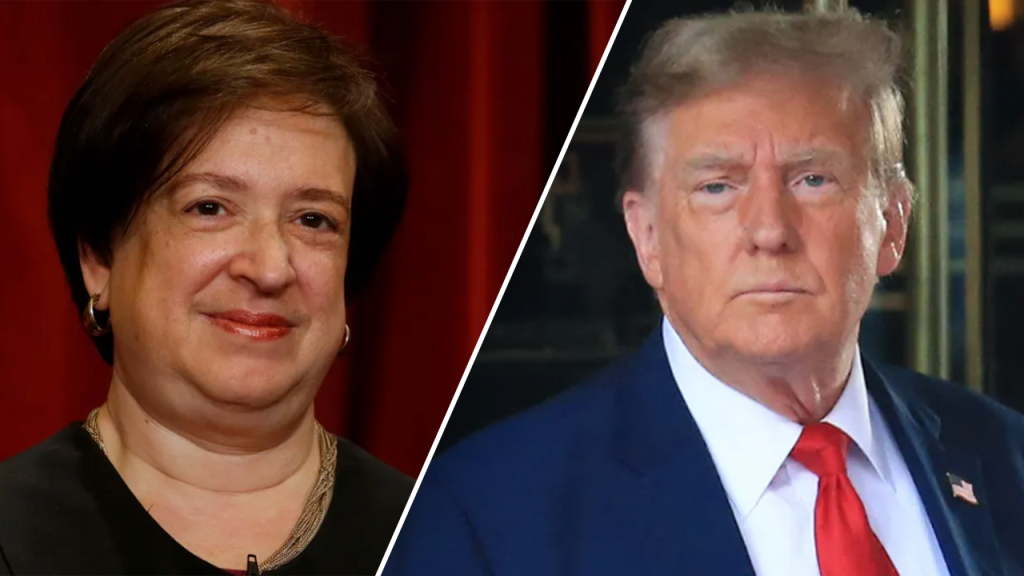During a presidential immunity hearing, former President Donald Trump’s attorney John Sauer clashed with Supreme Court Justice Elena Kagan over a hypothetical question regarding whether a former president who “ordered” a “coup” could be prosecuted. Sauer argued that if the action was an official act, impeachment and conviction would be necessary before prosecution. This debate raised questions about the limits of presidential immunity and the circumstances under which a former president could face legal consequences for their actions, even after leaving office. The Supreme Court is currently considering this issue as part of Special Counsel Jack Smith’s election interference case against Trump.
Specifically, Justice Kagan questioned whether a former president directing the military to stage a coup could be considered an “official act” and therefore immune from prosecution. Sauer responded that it would depend on the circumstances and whether impeachment had taken place. This exchange highlighted the complexities of applying the concept of presidential immunity and the need for clarity in defining what actions a president can be held accountable for, even after leaving office. The Supreme Court’s ruling on this matter is highly anticipated and could set a precedent for future cases involving former presidents.
The case against Trump, brought by Special Counsel Jack Smith, includes charges of conspiracy to defraud the United States, obstruction of justice, and conspiracy against rights in relation to the events of January 6, 2021, when supporters breached the U.S. Capitol. Trump has pleaded not guilty to all charges and is seeking clarification from the Supreme Court on whether a former president can be prosecuted for their actions while in office. This case has significant implications for the legal accountability of former presidents and the limits of presidential immunity in the American justice system.
In addition to the presidential immunity hearing, Trump is also facing trial in New York City on charges of falsifying business records. He has pleaded not guilty to the 34 counts against him, which include allegations related to payments made to Stormy Daniels to prevent her from speaking out about an alleged affair with Trump. Prosecutors in the New York case are focusing on proving that Trump falsified records with the intent to commit or conceal a crime, which could result in a felony conviction. The outcome of this trial, along with the Supreme Court’s ruling on presidential immunity, will have far-reaching implications for Trump’s legal standing and potential consequences for his actions while in office.
The legal battles surrounding Trump’s presidency highlight the complex legal issues that arise when holding a former president accountable for their actions. The debates over presidential immunity, impeachment, and the limits of executive power underscore the challenges of navigating the legal landscape in cases involving high-profile public figures. The Supreme Court’s upcoming ruling on Trump’s immunity from prosecution will play a crucial role in determining the legal standards for presidential accountability and the consequences for actions taken while in office.
Overall, the presidential immunity hearing involving former President Donald Trump raises fundamental questions about the legal boundaries of presidential power and the accountability of public officials for their actions while in office. The clash between Trump’s attorney and Supreme Court Justice Kagan underscored the complexities of defining what constitutes an “official act” and when a former president can be prosecuted for their actions. The outcome of this case will have wide-ranging implications for the legal standing of former presidents and the limits of presidential immunity in American law.


